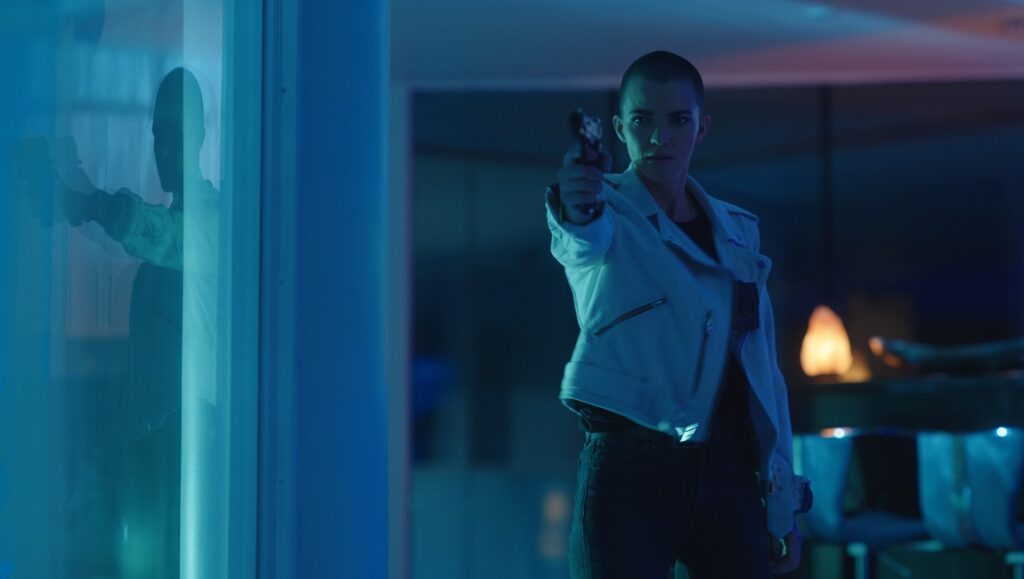Vanquish is bad, bizarrely so, but it’s at least not boring in its own dumpster fire way.
After a few hits as a writer, including Midnight Run, George Gallo has spent his career “directing” movies that seem suspiciously fake. Exhibit A: last year he was set to release The Comeback Trail, a probably fake remake of a barely existent 1982 movie, but that film still has not materialized. This is either because of the ongoing COVID-19 pandemic — with star Robert De Niro back on top after The War with Grandpa, it surely stands to make loads of cash at a healthier box office eventually — or because it simply isn’t real and the trailer was produced because AMC desperately needed anything to play in front of Tenet. Who can say? Wikipedia notes that The Comeback Trail “somewhat comically” boasts the involvement of thirty-two executive producers. After the supposed completion of that movie, Gallo gathered A-listers Ruby Rose, Morgan Freeman, and Nick Vallelonga for a crime movie called Vanquish, which on paper also sounds like a money-laundering front. But this critic can assure you of two things: Vanquish is real and, holy shit, is it bad.
This is evident from the jump, as the film begins with a six-minute opening title sequence — for comparison the end credits run two minutes — that presents a black-and-white digital collage catching us up with the surely important backstory. Intercut with foreboding images of handguns on tables, four newspaper stories about the life of Morgan Freeman’s former hero cop Damon slide across the screen roughly twenty times each, all to explain why he is, at the time of the film, in a wheelchair. In the present day, Damon is conducting all sorts of dirty business with dirty cops, and, for some vague reason, he needs Rose’s former badass Victoria to return to her old ways and do a series of cash pick-ups if she ever wants to see her daughter again. And so, she embarks on her motorcycle, from mostly empty location to even more empty location, picking up money and shooting people in the face. Easily the most memorable of these is a hidden bar where money-counting goons watch videos of strippers and, for some reason, Olympic curling. On the other side of the action, Morgan Freeman, confined to a single location, most likely on set for an hour and very probably zooted out of his skull, watches Ruby Rose through a camera on her vest, the images poorly composited onto a flat-screen TV.
When Victoria is on her motorcycle between stops, she almost always has a flashback, not to her troubled past, but to the preceding scene, just in case you forgot. Like all the scenes in Vanquish, these follow a rigid formal strategy: why use one shot when ten shots, three wipes, and five dissolves should do the trick? Camera placement is so haphazard as to approach the avant-garde — if anything else were enjoyable here, it would be tempting to make a case for this — and, combined with maybe the ugliest color correction job in cinema history, where the yellows recall piss and somehow the blues do too, keeps the film oddly compelling. Turn it off too soon and you might miss thirty more bizarre decisions. One quick insert shot of the moon over a bay looks so much like a CG-rendered screensaver from 2005 that it’s hard to tell if this is just remarkably bad photography or if, instead of going outside and shooting the moon (free, by the way), the filmmakers googled “nighttime” and picked the tenth best option. In the interest of saying one nice thing about Vanquish, it’s good to see Ruby Rose, whose portrayal of badasses begins and ends with a vacant expression, finally have the chance to be the best thing about a movie.


Comments are closed.